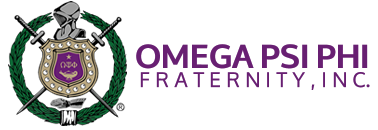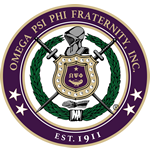Brothers of Omega Psi Phi and Their Profound Friendship with Dr. Martin Luther King, Jr.
Dr. Martin Luther King, Jr., a proud member of Alpha Phi Alpha Fraternity, Inc., was profoundly influenced by several members of Omega Psi Phi Fraternity, Inc., whose leadership, mentorship, and friendship left an indelible mark on his life and work, as documented by the Martin Luther King, Jr. Research and Education Institute.
The Influence of Brother Dr. Benjamin E. Mays
Among Dr. King’s most significant influences was Brother Dr. Benjamin E. Mays, President Emeritus of Morehouse College and a towering figure in King’s personal and intellectual development. As the pastor of Ebenezer Baptist Church in Atlanta and a Morehouse College trustee, Martin Luther King, Sr., introduced his son to Mays during King’s formative years. While attending Morehouse, young Martin developed a deep bond with Mays, whom he described as his “spiritual mentor.”
Brother Mays’ dedication to nonviolence and social justice profoundly shaped King’s philosophical and theological outlook. Mays’ encounter with Mahatma Gandhi during a 1937 YMCA conference in India solidified his understanding of nonviolent resistance as a powerful tool for social change. Years later, Mays’ insights would provide King with a deeper comprehension of Gandhi’s principles, reinforcing his commitment to nonviolence. Mays’ mentorship extended beyond the classroom, as he regularly visited the King family, attended Sunday dinners, and became a trusted advisor throughout King’s life. The two men’s relationship exemplified the transformative power of mentorship in leadership. After King’s assassination Mays eulogized him on the Morehouse campus by detailing King’s consistent faith in nonviolence.
Brother William Stuart Nelson: An Advocate of Nonviolence
Brother William Stuart Nelson was another prominent Omega man whose influence on Dr. King cannot be understated. As an internationally renowned advocate of nonviolence, Nelson’s intellectual contributions and personal mentorship enriched King’s understanding of Gandhian philosophy. Nelson, a distinguished academic and former Dean of the Howard University School of Religion, corresponded frequently with King, sharing insights on nonviolence and its application in civil rights struggles.
In 1958, Brother Nelson authored the article “Satyagraha: Gandhian Principles of Non-Violent Non-Cooperation,” which King described as “one of the best and most balanced analyses of Gandhian principles” he had ever read. Nelson’s commitment to peace extended to his participation in civil rights marches and his leadership in various peace and educational initiatives. His legacy as a scholar and activist lives on in the principles that King so effectively championed.
Brother Bayard Rustin: The Strategist Behind the Movement
Brother Bayard Rustin, affectionately known as “Mr. March-on-Washington,” was a key advisor to Dr. King and a master strategist of the civil rights movement. Despite facing criticism for his background, Rustin’s unparalleled expertise in nonviolent tactics and organizing made him indispensable to King’s efforts. He played a pivotal role in the Montgomery Bus Boycott and was instrumental in the formation of the Southern Christian Leadership Conference (SCLC).
Rustin’s mentorship extended beyond logistics; he deepened King’s understanding of nonviolence as both a philosophy and a strategy. As King’s special assistant, Rustin served as a proofreader, ghostwriter, and nonviolence strategist, ensuring that the movement remained grounded in its principles of peace and love. His organizational brilliance culminated in the historic 1963 March on Washington, a watershed moment in the fight for civil rights.
Brother Roy Wilkins: Partnering for Civil Rights
As Executive Secretary of the NAACP, Brother Roy Wilkins collaborated with Dr. King on many major civil rights campaigns. While Wilkins favored a legalistic approach, his partnership with King demonstrated the importance of combining different strategies to achieve racial equality. Wilkins’ steadfast support for the Montgomery Bus Boycott and his collaboration on the March on Washington underscored his commitment to the cause.
King recognized Wilkins’ leadership and contributions, once writing, “You have proved to be one of the great leaders of our time. Through your efficiency as an administrator, your genuine humanitarian concern, and your unswerving devotion to the principles of freedom and human dignity, you have carved for yourself an imperishable niche in the annals of contemporary history.” Their mutual respect and collaboration were vital to the movement’s success.
Brother Benjamin Hooks: A Voice for Justice
Brother Benjamin Hooks, a Baptist minister and member of SCLC’s executive board, made significant contributions to the civil rights movement. In 1962, Dr. King praised Hooks’ impactful sermon at Ebenezer Baptist Church, noting its profound effect on young people and the broader congregation. Hooks’ leadership extended to his role as Executive Director of the NAACP, where he continued to advocate for justice and equality.
Hooks remained a steadfast supporter of King’s vision, attending pivotal events like the Memphis Sanitation Workers’ Strike and witnessing King’s final speech, “I’ve Been to the Mountaintop.” His lifelong dedication to civil rights exemplified the principles that King held dear.
Brother Fred Gray: Legal Counsel and Civil Rights Champion
Brother Fred Gray, a trailblazing attorney and activist, played a critical role in the civil rights movement and was a trusted ally of Dr. Martin Luther King, Jr. Known as “the brilliant young Negro who later became the chief counsel for the protest movement,” as described by King, Gray’s legal expertise was instrumental in landmark cases that dismantled systemic racism. He represented Rosa Parks in the Montgomery Bus Boycott case and served as legal counsel for the Montgomery Improvement Association, which King led. Gray’s relentless pursuit of justice extended to desegregation efforts in education and public accommodations. His work exemplified the intersection of law and civil rights, ensuring that King’s nonviolent resistance was supported by robust legal strategies. Gray’s contributions to the movement underscore the indispensable role of legal advocacy in achieving lasting social change.
Brother Jesse Jackson: King’s Protégé and SCLC Leader
Brother Jesse Jackson, a dedicated civil rights activist and a close protégé of Dr. Martin Luther King, Jr., played a pivotal role in advancing King’s vision of equality and justice. Initially inspired by King during the Selma to Montgomery March, Jackson joined the Southern Christian Leadership Conference (SCLC) and became a key figure in its Operation Breadbasket initiative, which focused on economic justice for marginalized communities. King admired Jackson’s leadership abilities, once stating that “no one could be more effective” in leading the program. Despite occasional tensions, their shared commitment to the movement’s goals remained strong. Jackson was present at the Lorraine Motel in Memphis on the day of King’s assassination, a moment that deepened his resolve to continue the fight for civil rights. Jackson’s enduring work, including founding the Rainbow PUSH Coalition, reflects the lessons and legacy of his mentor.
A Legacy of Friendship and Influence
While Dr. Martin Luther King, Jr. was a proud Alpha man, his friendships and collaborations with the Brothers of Omega Psi Phi Fraternity, Inc. played a crucial role in shaping his journey. From mentorship to strategic guidance, these Omega men embodied the fraternity’s commitment to “Friendship is Essential to the Soul,” fostering relationships that propelled the civil rights movement forward.
Today, we honor not only Dr. King’s legacy but also the enduring friendship of the Omega men who walked beside him, proving that brotherhood and shared purpose can change the world.
View this post on Instagram

